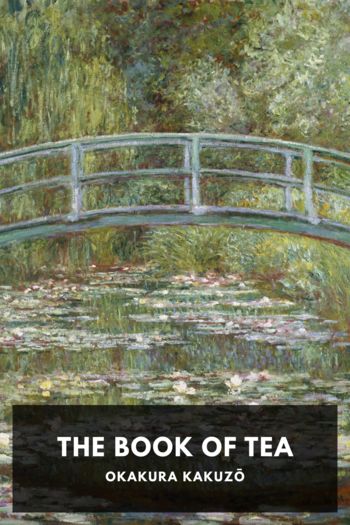Love Among the Chickens P. G. Wodehouse (ink ebook reader .txt) 📖

- Author: P. G. Wodehouse
Book online «Love Among the Chickens P. G. Wodehouse (ink ebook reader .txt) 📖». Author P. G. Wodehouse
By P. G. Wodehouse.
This ebook is the product of many hours of hard work by volunteers for Standard Ebooks, and builds on the hard work of other literature lovers made possible by the public domain.
This particular ebook is based on a transcription produced for Project Gutenberg and on digital scans available at the HathiTrust Digital Library.
The writing and artwork within are believed to be in the U.S. public domain, and Standard Ebooks releases this ebook edition under the terms in the CC0 1.0 Universal Public Domain Dedication. For full license information, see the Uncopyright at the end of this ebook.
Standard Ebooks is a volunteer-driven project that produces ebook editions of public domain literature using modern typography, technology, and editorial standards, and distributes them free of cost. You can download this and other ebooks carefully produced for true book lovers at standardebooks.org.
DedicationTo W. Townend
Dear Bill—
I have never been much of a lad for the
To ⸻
But For Whose Sympathy and Encouragement
This Book
Would Never Have Been Written
type of dedication. It sounds so weak-minded. But in the case of Love Among the Chickens it is unavoidable. It was not so much that you sympathised and encouraged—where you really came out strong was that you gave me the stuff. I like people who sympathise with me. I am grateful to those who encourage me. But the man to whom I raise the Wodehouse hat—owing to the increased cost of living, the same old brown one I had last year. It is being complained of on all sides, but the public must bear it like men till the straw hat season comes round—I say, the man to whom I raise this venerable relic is the man who gives me the material.
Sixteen years ago, my William, when we were young and spritely lads; when you were a tricky centre-forward and I a fast bowler; when your head was covered with hair and my list of “Hobbies” in Who’s Who included Boxing; I received from you one morning about thirty closely-written foolscap pages, giving me the details of your friend ⸻’s adventures on his Devonshire chicken farm. Round these I wove as funny a plot as I could, but the book stands or falls by the stuff you gave me about “Ukridge”—the things that actually happened.
You will notice that I have practically rewritten the book. There was some pretty bad work in it, and it had “dated.” As an instance of the way in which the march of modern civilisation has left the 1906 edition behind, I may mention that on page twenty-one I was able to make Ukridge speak of selling eggs at six for fivepence!
Yours ever,
P. G. Wodehouse.
London, 1920.
Love Among the Chickens I A Letter with a Postscript“A gentleman called to see you when you were out last night, sir,” said Mrs. Medley, my landlady, removing the last of the breakfast things.
“Yes?” I said, in my affable way.
“A gentleman,” said Mrs. Medley meditatively, “with a very powerful voice.”
“Caruso?”
“Sir?”
“I said, did he leave a name?”
“Yes, sir. Mr. Ukridge.”
“Oh, my sainted aunt!”
“Sir?”
“Nothing, nothing.”
“Thank you, sir,” said Mrs. Medley, withdrawing from the presence.
Ukridge! Oh, hang it! I had not met him for years, and, glad as I am, as a general thing, to see the friends of my youth when they drop in for a chat, I doubted whether I was quite equal to Ukridge at the moment. A stout fellow in both the physical and moral sense of the words, he was a trifle too jumpy for a man of my cloistered and intellectual life, especially as just now I was trying to plan out a new novel, a tricky job demanding complete quiet and seclusion. It had always been my experience that, when Ukridge was around, things began to happen swiftly and violently, rendering meditation impossible. Ukridge was the sort of man who asks you out to dinner, borrows the money from you to pay the bill, and winds up the evening by embroiling you in a fight with a cabman. I have gone to Covent Garden balls with Ukridge, and found myself legging it down Henrietta Street in the grey dawn, pursued by infuriated costermongers.
I wondered how he had got my address, and on that problem light was immediately cast by Mrs. Medley, who returned, bearing an envelope.
“It came by the morning post, sir, but it was left at Number Twenty by mistake.”
“Oh, thank you.”
“Thank you, sir,” said Mrs. Medley.
I recognised the handwriting. The letter, which bore a Devonshire postmark, was from an artist friend of mine, one Lickford, who was at present on a sketching tour in the west. I had seen him off at Waterloo a week before, and I remember that I had walked away from the station wishing that I could summon up the





Comments (0)